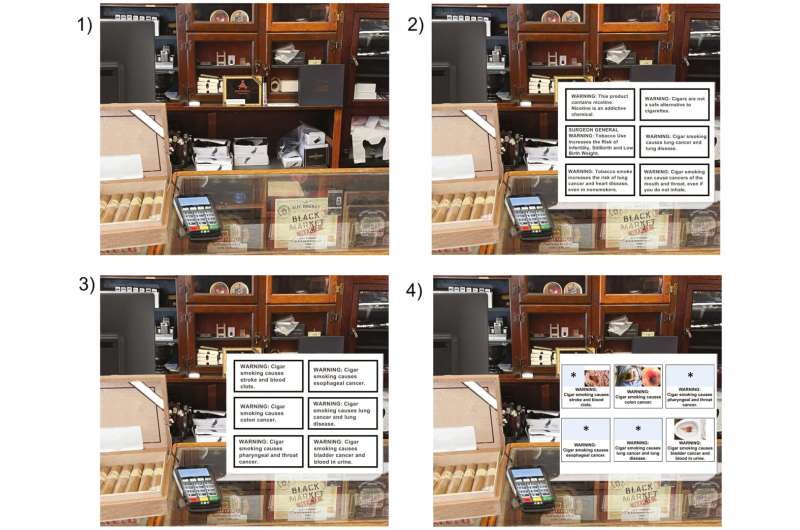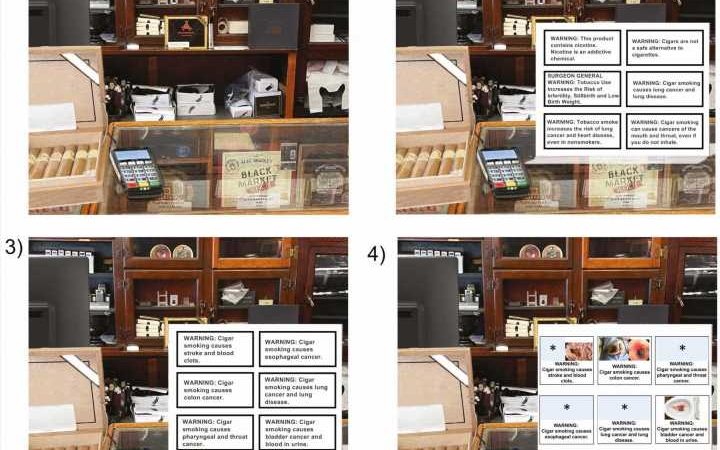
A new study published by UNC Family Medicine’s Sarah Kowitt, Ph.D., MPH, and colleagues looked at the impact of different types of warning signs for large and premium cigars sold individually at the point of sale. The team’s newly developed graphic and text warnings were more effective than the FDA’s proposed text-only warnings and could potentially increase the effectiveness of warning signs for large and premium cigars.
Cigars are linked to increased risk of cancer, cardiovascular disease, lung disease and other negative health effects such as gum disease and tooth loss, just like cigarettes. Most cigars come in packages that have text warnings directly on the packaging, but large and premium cigars are often sold individually and not in packages.
For these types of cigars, the FDA, which oversees the regulation of cigars, has proposed that stores display a sign near cash registers informing people about the risks of cigar use.
A new study published in Nicotine and Tobacco Research by UNC Family Medicine’s Sarah Kowitt, Ph.D., MPH, and colleagues looked at the impact of different types of warning signs for large and premium cigars sold individually at the point of sale. Specifically, they conducted an online experiment to gauge the effectiveness of text-only cigar warnings versus warning signs that included images or other graphics.
Evidence showed that the team’s newly developed graphic and text warnings at the point of sale were more effective than the FDA’s proposed text-only warnings and could potentially increase the effectiveness of warning signs for large and premium cigars.
“This is the first study in the literature showing how graphic cigar warnings may impact point of sale perceptions of large and premium cigars,” said Adam Goldstein, MD, MPH, who is the study’s primary investigator and is director of the UNC Tobacco Intervention Programs. “As combustible tobacco products, all cigar products cause cancer, so efforts to educate users about the health effects of cigars is especially important.”
“To me, this research is important because it provides direct evidence that the FDA can use when regulating cigars,” Kowitt said. “Our findings show that adding images to cigar warning signs could potentially discourage premium cigar use. We hope this research leads to future studies that evaluate how cigar warning policies and regulations affect premium cigar use.”
More information:
Sarah D Kowitt et al, Improving Point-of-Sale Warnings for Single Cigars: Implications for Premium Cigars, Nicotine and Tobacco Research (2023). DOI: 10.1093/ntr/ntad006
Journal information:
Nicotine and Tobacco Research
Source: Read Full Article
